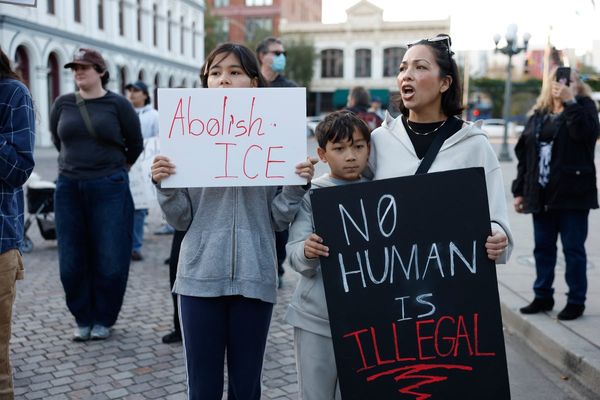After months of intense deliberation, I decided to walk away from a place in this year’s 25th anniversary series of Big Brother when it begins to ITV later this month. Not because I’m shy of a debate – as a political adviser, I’ve made a career out of arguing – but because, in the end, the risks outweighed the test I wanted to run.
The brutish nature of reality TV is nothing new. We know the stories – editing that renders conversation unrecognisable, pressure-cooker environments that push contestants to the edge (and into years of therapy), careers completely destroyed, utterly relentless tabloid media coverage and in extreme cases, lives lost.
So, why did I even apply to be a contestant?
Put simply: I wanted to explore, from the inside, why conservatives have been so successful at capturing popular culture – particularly reality TV – and to test whether a liberal voice could master the very terrain the right has dominated all these years.
Nigel Farage, Matt Hancock, Ann Widdecombe, and, of course, Donald Trump are the obvious names to call on when you think of reality TV and politics overlapping – all of whom have used the platform to promote, defend and normalise right-wing ideals.
But civilian reality TV has also influenced our politics. Last year, Nathan King, a 24-year-old pork salesman from Dumfries, casually predicted on last year’s Big Brother that Farage would be the next prime minister, and it landed as everyday small talk that was broadcast to millions of viewers. Since then, Reform UK’s polling has doubled – not as a direct result, but as part of the wider conversation.
Perhaps most notoriously, however, is that king of toxic masculinity, Andrew Tate, got his first break on Big Brother, before building his misogynistic online empire.
If our politics is shaped by primetime television rather than parliament, I thought, then surely it matters who controls that stage.
Filtered from more than 130,000 applicants, I arrived at a Manchester hotel, where we were split into a temporary “house” and put through a series of warm-up tasks.
Then came the debate round, which although initially began with innocuous questions such as “Is Beyoncé overrated?” and “Should you check your partner’s phone?”, soon turned to more contentious subjects.
“Should trans athletes be able to participate in cisgender sports?” the producer asked the room.
It went quiet. Side eyes. Awkward shuffling. One woman, a farmer’s daughter from Cumbria, sat down.
After a few minutes, it looked to be an 8/1 split for “no”. Except, I refused to debate.
There were too many unknowns. What sport? What level? What country? What testing regime?
I am pro-trans rights, and I wasn’t about to be pigeonholed in a room where every word was being recorded and three executives at the back were furiously scribbling notes.
The producer simply re-read the question when I demanded context.
There are complex debates to be had in sporting contexts, and I welcome that conversation. But this wasn’t that. This was a shallow, trivial and provocative attempt to kickstart a row on something that really affects marginalised people.
The producer, increasingly flustered, insisted he was “just reading the question”.
I argued about the absurdity of such a broad, context-free framing for a few more minutes, before a senior producer eventually stepped in. I stood alone in the middle of the room, refusing to take a side.
Despite this clash, I – and one other person from my “house” – made it to the next stage.
For me, that moment summed up the dilemma: Big Brother can spark important conversations, but it can just as easily turn them into two-dimensional caricatures. The reality TV genre favours absolutists, and in the end, I couldn’t risk being chewed up by the very system I wanted to interrogate.
So, this week, I walked away.
I’d had ideas of how I might play it – a launch night stunt in support of Ukraine and Gaza, a test of how the left could reclaim our union flag, a challenge to Farage’s rhetoric. Turning my back meant abandoning all that, which was difficult, however scary the venture felt.
In one sense, I succeeded – I still saw inside the machine, and learned a lot of what I needed. In another sense, I fell at the final hurdle. Too much of a “snowflake” to take on Big Brother.
But when reality TV shows reach millions in their homes every night and more people cast their vote for their favourite (or least favourite) contestant than show up at a polling station, the left can’t afford to sneer at it from the sidelines. We have to engage and embrace it.
We can whinge about why people are more motivated to decide who shares a bed on TV than who governs our country, or we can get in the arena and start taking control of that democratic energy.







